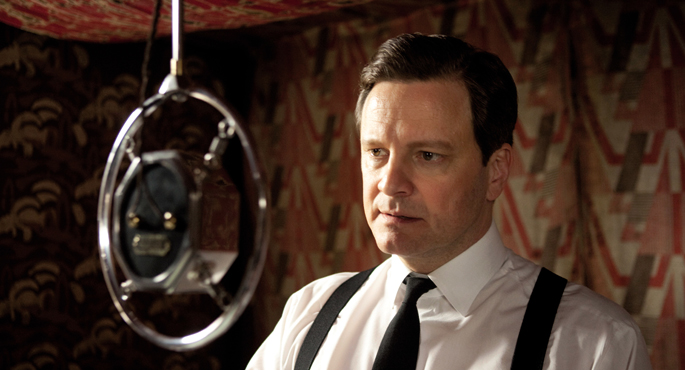

Is it more enriching to watch the movie in the original language? The answer is very simple: of course yes. The voice of the actor corresponds to a very high percentage of interpretation. To give you a striking example, in Colin Firth The King's Speech, he tries to see both ways, the difference is amazing. The film is a whole, and the intrusion of outside voices can radically alter the creative work original.En Spain, in 1941, established a law according to which all films should be premiered in duplicate in order to
censor conversations that did not suit them. Since then, society has become accustomed to dubbing and we have become accustomed to hearing many arguments against seeing it in its original language. In my opinion, watching the film folded is like attending a Rolling Stones concert while Mick Jagger moves his lips and hearing a dubbing that Bisbal sang.
Another argument that is often used is that they have great responsibility for dubbing in Spanish. They do not lack reason, but that is precisely the problem, which are benchers, not filmmakers. They try to stick the text to the movement of the lips and they can lose many nuances along the way. The result of the director's work after ten attempts with the actress. If we see it in the original language, the perception about the work will be much more direct, as we will avoid intermediaries between issuer and receiver. You'll understand it with a very clear example. Let's suppose that in a language you dominate, there's a movie, for example in Euskera. How would you like to see it? In the original language you master or in the double? I am sure that 100% would choose the original language. And why, if I asked you, the arguments you'd give would be the same as I've given. “I don’t master that original language,” for that purpose, the subtitling was created. With the dubbing you must change the entire soundtrack (music, voices, noises...). With the subtitles, on the other hand, he expresses what the actor says through written lines, and respect for the original work is total. They express as faithfully as possible everything that is said, taking into account all possible details. “I’m not going to the movies to read,” “If you look at the words, I can’t see the images.” This is where the real “problem”, the laziness, is manifested. Recognize, the main reason for this stubbornness to watch the films folded is intellectual laziness, another consequence of the disease of passivity.
At the opposite end of this laziness are numerous countries, such as India, which, because of economic constraints, are forced to watch American films in their original language. Saving on dubbing is a way of not making your tickets more expensive, so you know English a lot. The learning process of another language, we should understand it as a cultural immersion.
Another important element that we cannot forget is the massive use of the Internet, and the movies and series that we swallow every day. More and more viewers want to see the series coming from a particular country of origin, at the rate that they broadcast. They are mainly young and are gradually joining the army of the defenders of the original language. They are more linguistically prepared, educated along with technological advances and ask for much more such products, as they are accustomed to consuming on a daily basis.
The key is to lose the fear, as it is very enriching to enjoy audiovisual products in their original language. For many people around the world, film is a very natural way of seeing, marked by many years of tradition. It's about to see where the future of cinema is going. But for the moment, and even if it seems utopian, don't you think that the most fair thing would be not to have to decide between those two modalities and have two options at all times?